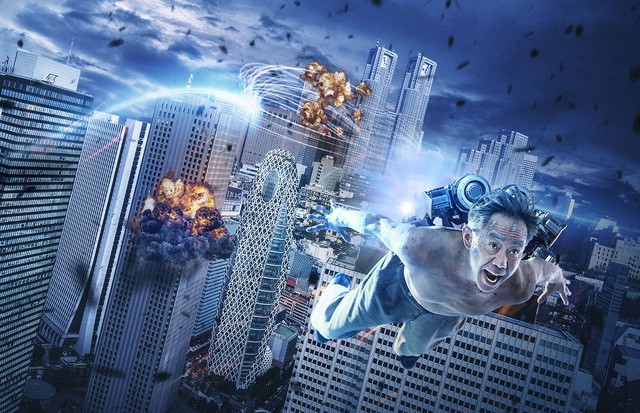Inuyashiki explores the life of Ichiro Inuyashiki, an elderly salaryman who is marginalized by his family and society. He’s portrayed as frail, lonely, and largely invisible to those around him. His life takes a darker turn when he’s diagnosed with terminal cancer, and even this tragic news fails to elicit any real concern from his family. This setup creates a powerful emotional foundation, highlighting the themes of isolation, neglect, and the deep human desire to feel seen and valued.

One night in the park, Ichiro’s fate changes when a mysterious alien force accidentally kills him and reconstructs his body using advanced robotic technology. Though he appears the same on the outside, he now possesses extraordinary abilities, including super strength, flight, and the power to heal. With these powers, Ichiro finds renewed purpose in life—not as a weapon of revenge, but as a protector of the vulnerable. His transformation becomes symbolic of a second chance at meaning, countering the idea that age equates to uselessness.
In contrast, Hiro Shishigami, a high school student who was also transformed by the same alien technology, uses his powers for nihilistic destruction. Unlike Ichiro, Hiro is emotionally detached and uses his abilities to kill at random, seeking a sense of control and release from boredom. He represents the darker side of alienation—a younger person who, despite being surrounded by others, feels disconnected from humanity. His actions are chilling not only because of the violence, but also due to his disturbing lack of empathy and moral compass.

The story becomes a philosophical and emotional duel between these two characters, who mirror each other in power but contrast starkly in values. Ichiro’s commitment to saving lives comes from his newfound sense of empathy and his desperate desire to be useful and loved, while Hiro’s descent into violence reflects the consequences of emotional neglect, moral apathy, and disillusionment. Their encounters are not just physical battles but ideological ones, questioning what it means to be human, especially when one’s body is no longer flesh and blood.

In the climax, Ichiro ultimately sacrifices himself to prevent a catastrophic missile attack on Tokyo, using all of his remaining energy to save millions. His death is not in vain—it redeems his life, earns him the love and respect of his previously distant family, and solidifies his legacy as a true hero. Inuyashiki ends as a meditation on humanity, self-worth, and the potential for goodness, even in a mechanical shell. It suggests that what defines us is not our age, our body, or our power—but how we choose to use what we’ve been given.
